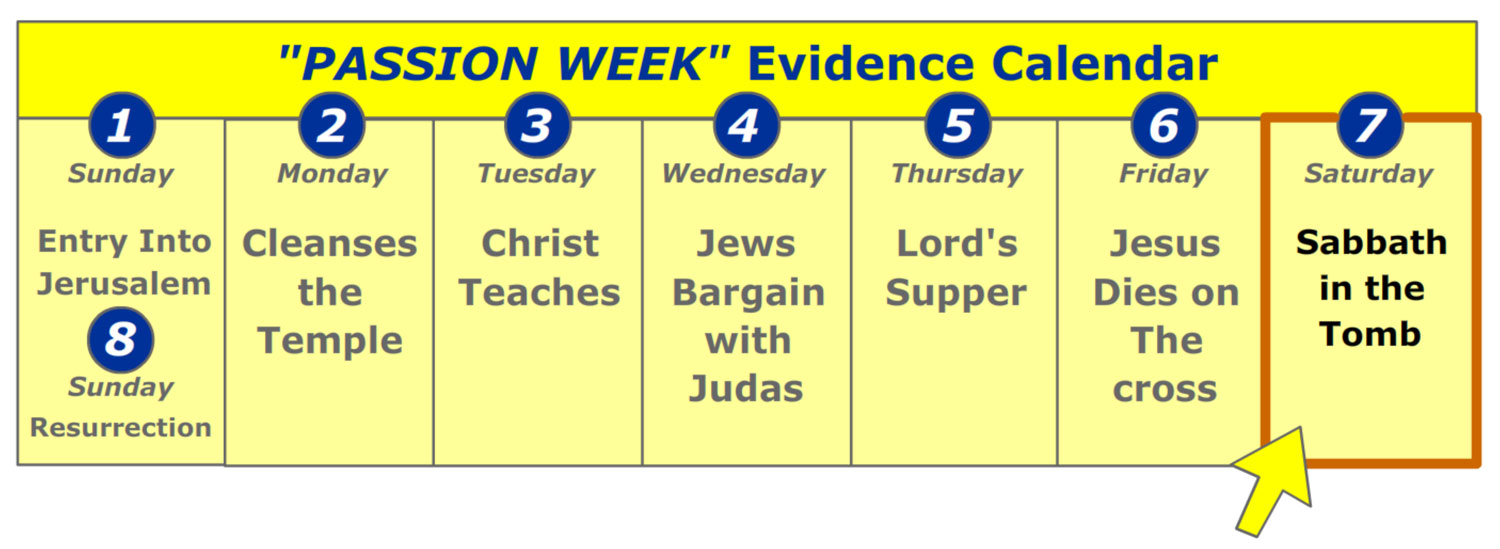
Calendar Series

The story of Jesus' death and resurrection provide evidence that the day following the Sabbath is the first day (Sunday). Jesus finished his work when he died on Friday, and then rested in the tomb during the Sabbath hours on the seventh day.
The First Day Follows the Sabbath
Matt 28:1 "In the end of the sabbath, as it began to dawn toward the first day of the week, came Mary Magdalene and the other Mary to see the sepulchre."
This text says that the first day follows Sabbath. Sunday is the day after Sabbath.
Mathew, Mark, Luke, and John wrote long enough after Christ that they would have mentioned a change of the Sabbath from the seventh day to the first, if it had occurred. But they don't. Mathew wrote about six years after Christ's ascension. Mark wrote about ten years after. Luke wrote about 28 years after. John wrote about sixty three years after. All four are silent on any kind of a change.
Jesus' teachings included the Sabbath.
Luke 4:16 "And he came to Nazareth, where he had been brought up: and, as his custom was, he went into the synagogue on the sabbath day, and stood up for to read."
Matthew 12:8-9 "For the Son of man is Lord even of the sabbath day. And when he was departed thence, he went into their synagogue:"
Matthew 24:20 "But pray ye that your flight be not in the winter, neither on the sabbath day:"
Christ here speaks of Jerusalem, which would be destroyed in 70 AD (most Bible scholars agree that this passage has a dual meaning, also referring to the end of time). If the Sabbath had been changed to Sunday would not Christ have said don't flee on Sunday? The year 70 A.D. was long enough after Christ for the change to have taken place.
In the next "Calendar of Evidence" the weekly Sabbath is contrasted with the feast sabbaths.